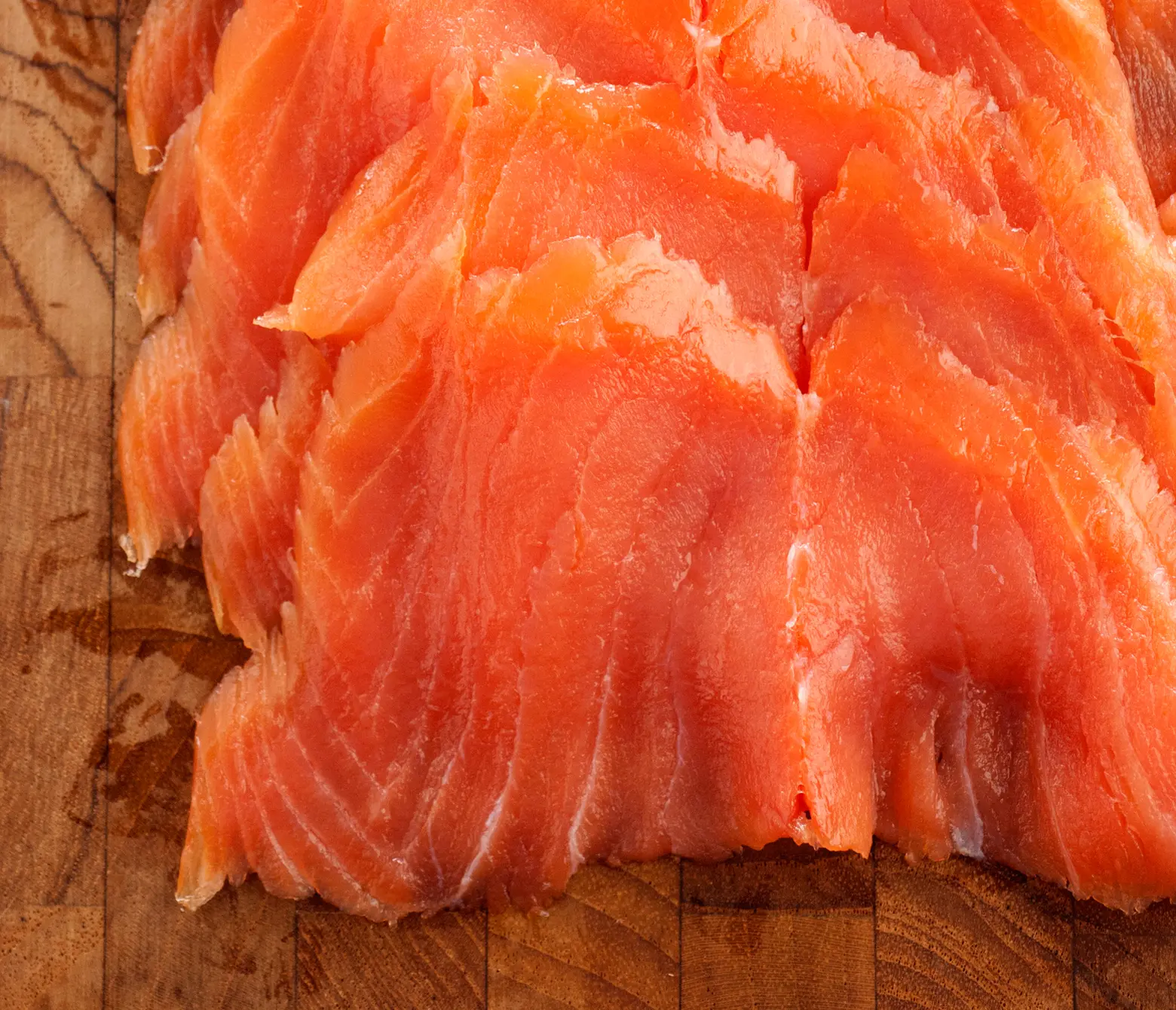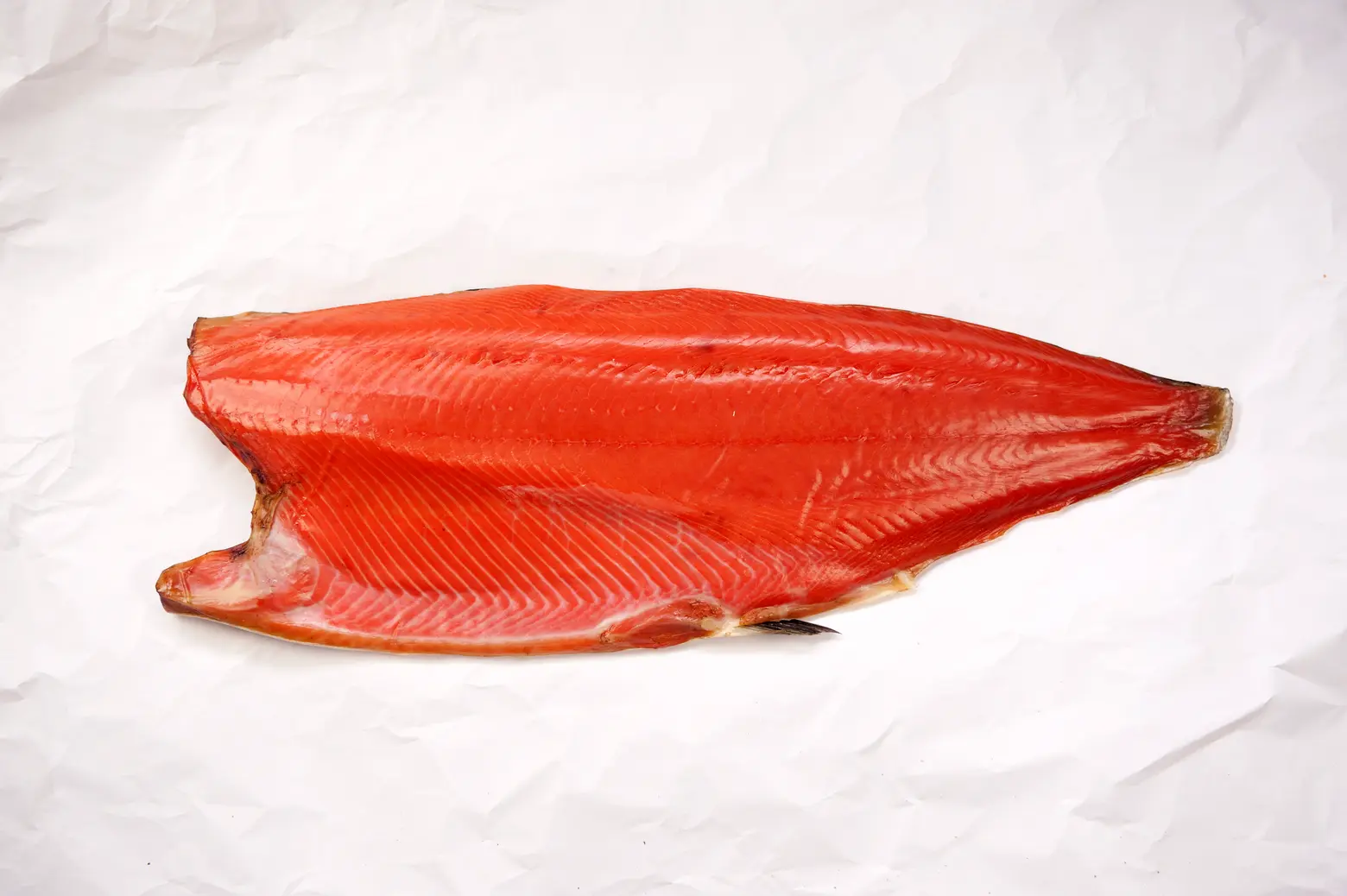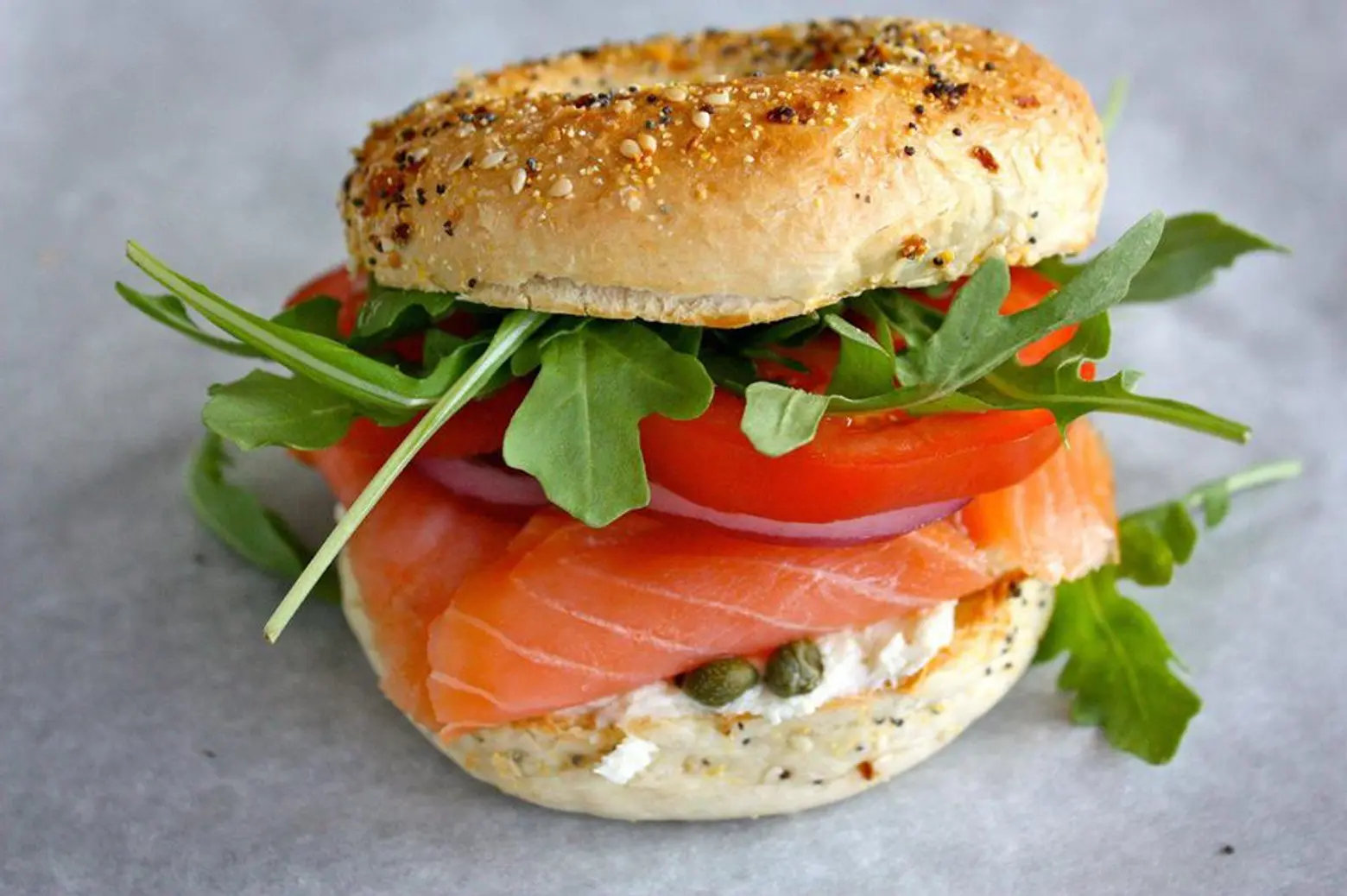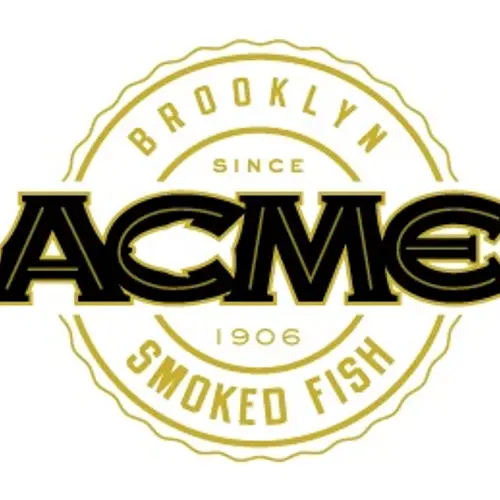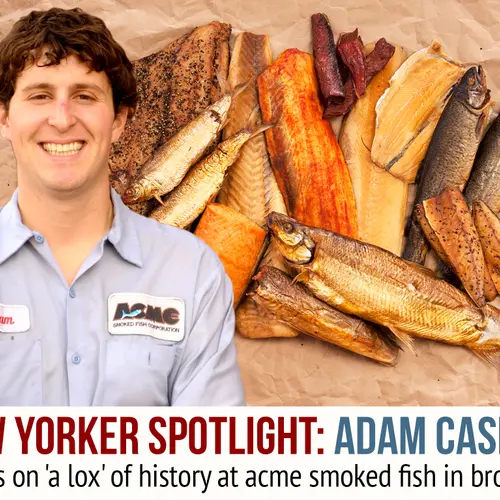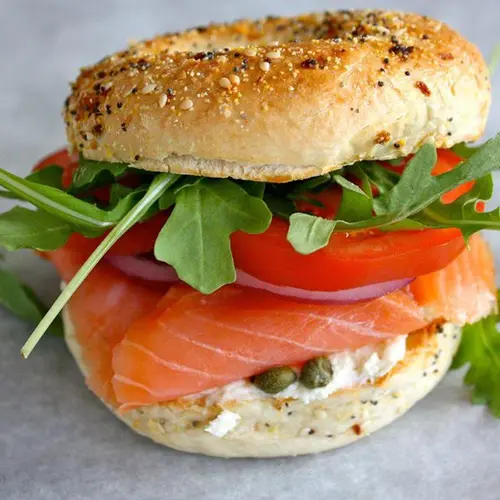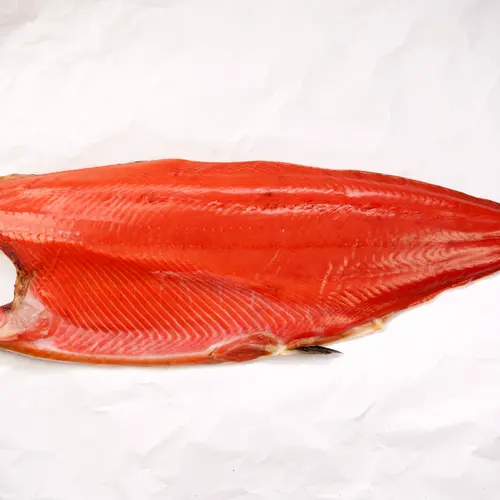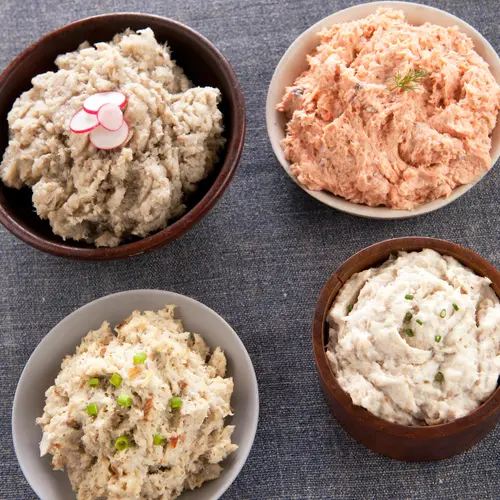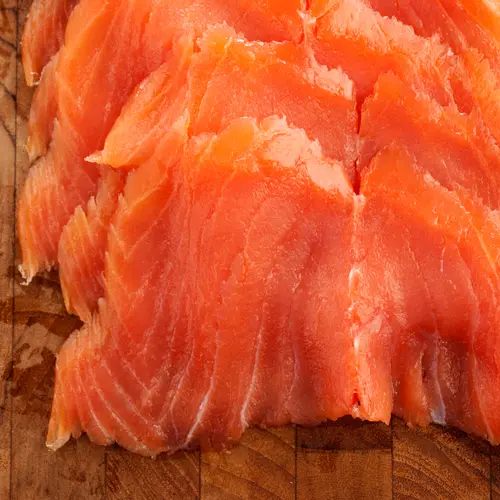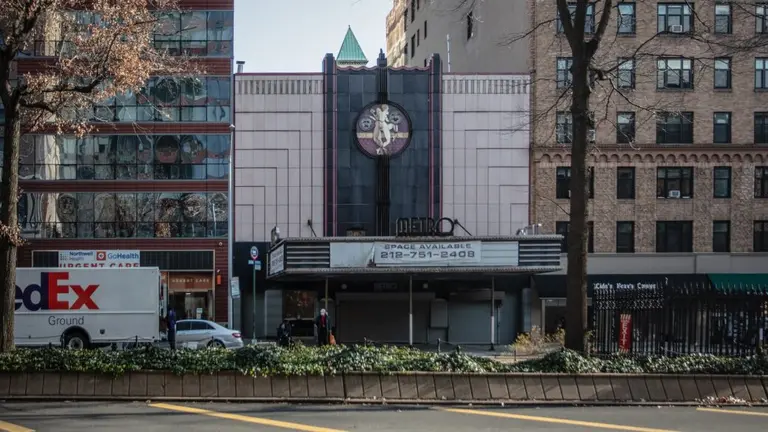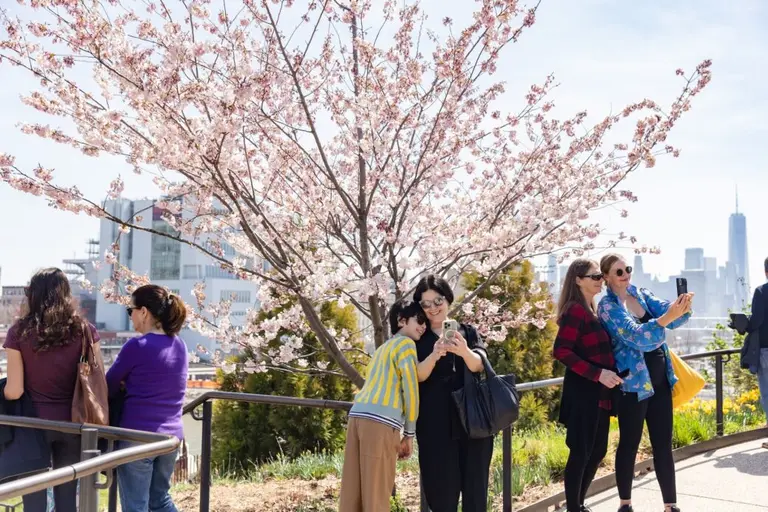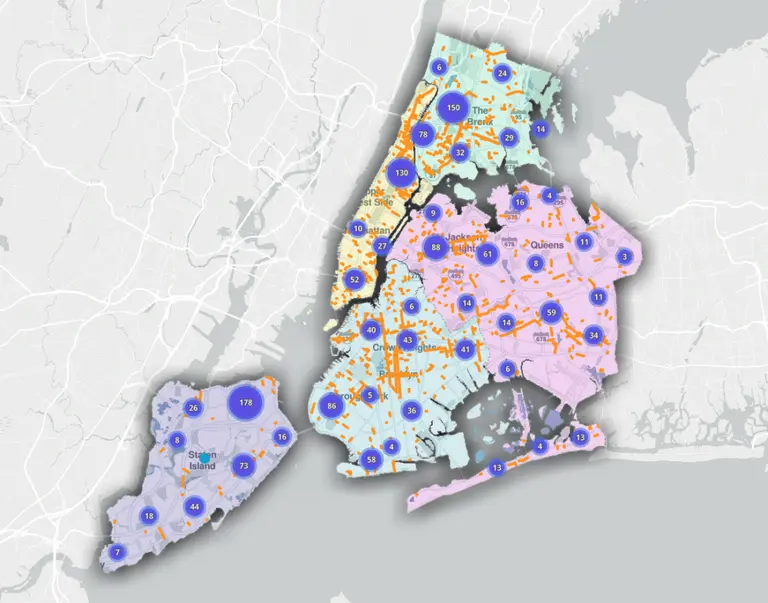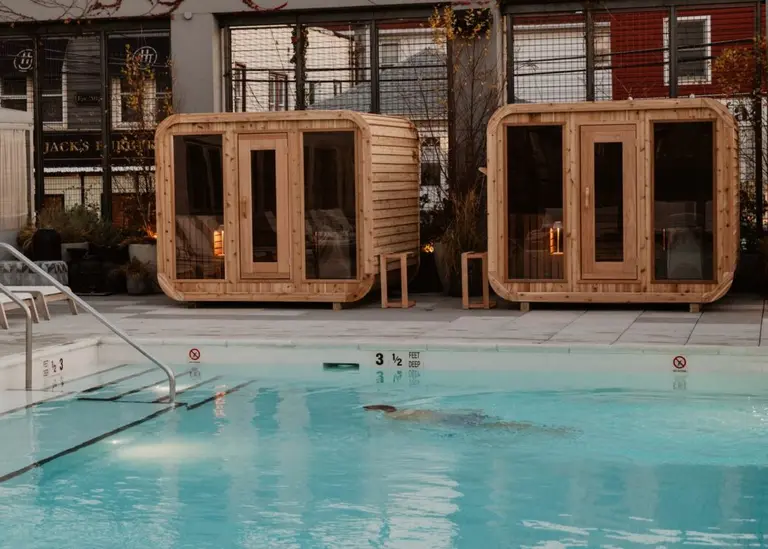Spotlight: Adam Caslow Carries on ‘A Lox’ of History at Acme Smoked Fish
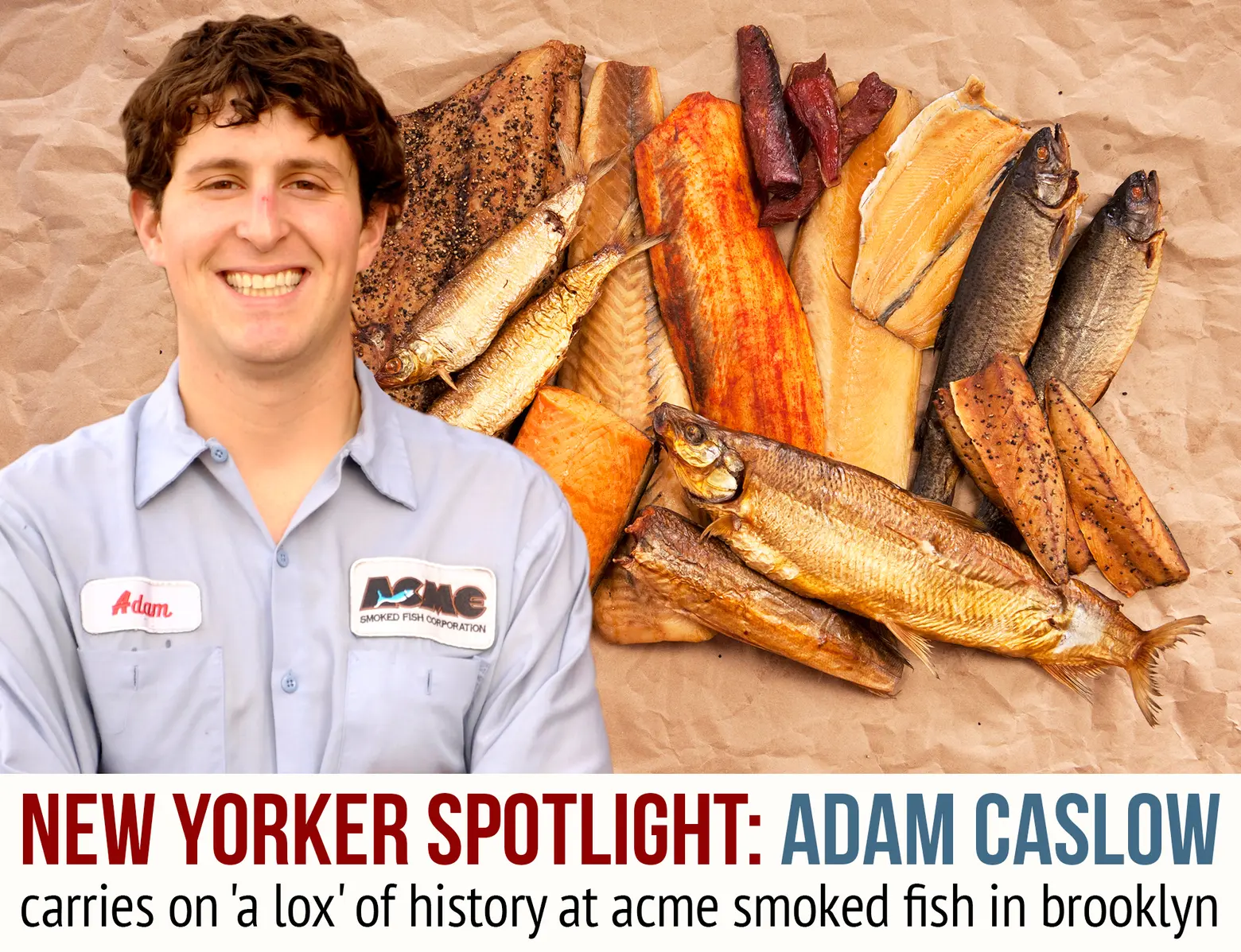
For many smear-loving New Yorkers, there’s no better way to usher in the weekend than with a bagel and lox. And one of the companies keeping this culinary tradition alive is Brooklyn-based Acme Smoked Fish, a family business that traces its roots back to 1906 when Harry Brownstein started selling fish out of a wagon.
For over 100 years, members of the Brownstein and Caslow families have been providing New York with smoked salmon, herring, fish salads, and other specialties. Adam Caslow and his cousin David Caslow are part of Acme’s fourth generation, continuing to grow the company and adapt to the city’s current “Renaissance in appetizing.” 6sqft recently spoke with Adam to learn more about Acme’s rich history, smoked fish, and how he feels about carrying on a family tradition.
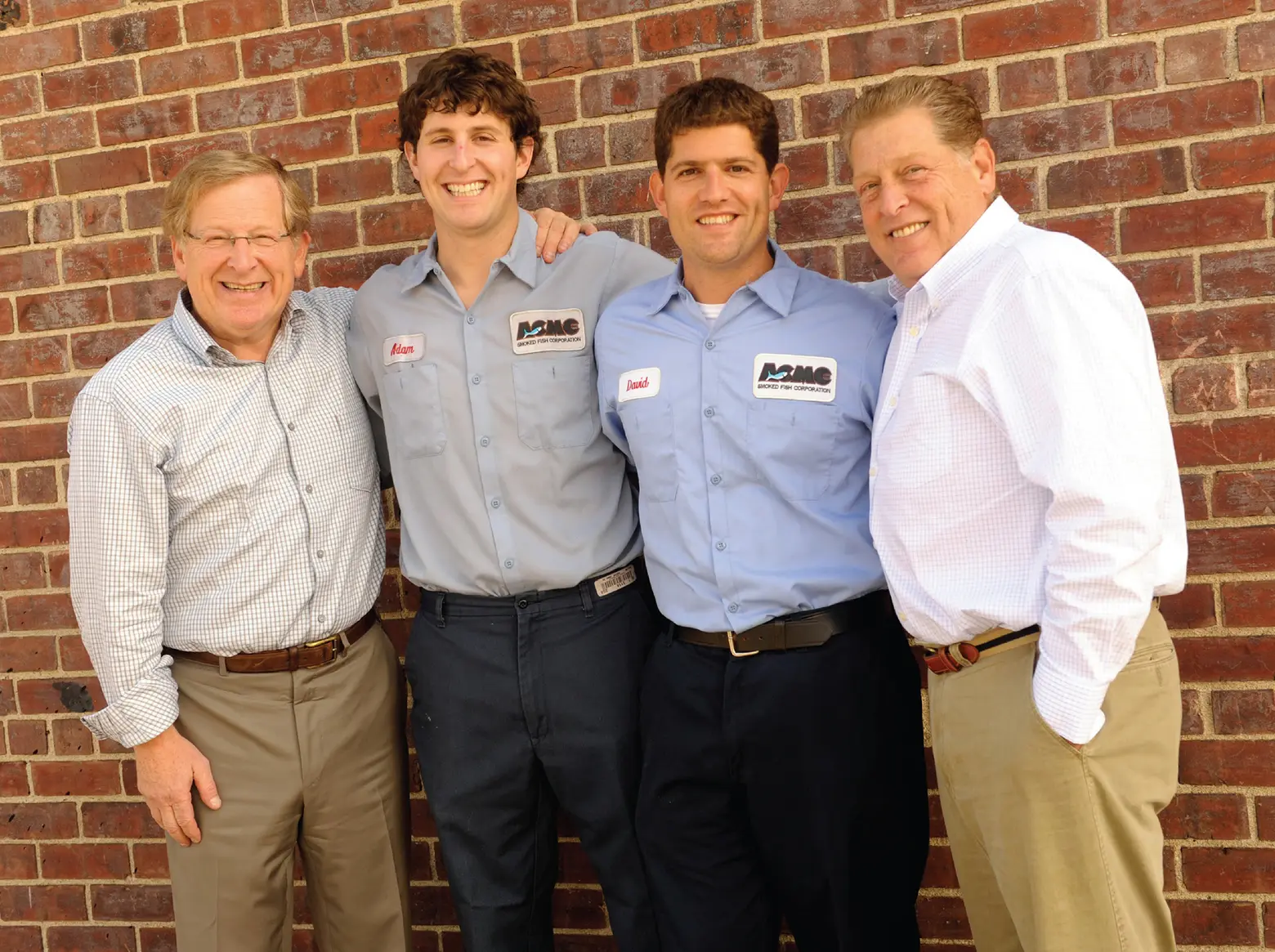
Four generations of Acme Smoked Fish. L to R: Robert Caslow, Adam Caslow, David Caslow, Eric Caslow
What inspired Harry Brownstein to start Acme, and how did it evolve into a family affair?
Harry started in the smoked fish business in 1906. He was what’s called a wagon jobber, meaning he had his own horse-drawn wagon and went throughout Brooklyn and Queens buying fish and selling it. His dream was to open up his own smoked fish company, moving up the supply chain. He was able to do that in 1954 and opened up Acme Smoked Fish.
My grandfather Rubin Caslow was also a jobber. One day he walked in and saw my grandmother working in her father’s (Harry Brownstein’s) smokehouse, and he wanted to take the smoked fish girl out. That’s how they met and after they got married, he became a partner in the family business.
Why did you decide to join the business, and what is it like to work with your family?
My mom was a doctor, and growing up, I thought I wanted to be a doctor, too. When I used to go to work with my father, it was a little scary, a little noisy, a little wet and cold. He would show me around the factory, and I remember carrying his big keychain around my waist. My education was in hospitality management at Cornell, and I liked the theatrics and the service aspect, so I worked in food and beverage a little bit after school in Colorado. Finally, when I moved back and the business was growing, my dad said, “Is this something that you’re interested in? Because if you are, I need the help.” I said “all right, let’s give it a shot.”
My cousin David and I are both managing partners, but we split the business up similar to the way our fathers did in that David focuses mainly on the procurement and production, getting fish made, and I focus more of my time on order assemblies and logistics. Our parents had that split and really kept to it; they each really focused on their own area and rarely crossed. David and I are the opposite. Although we have our own areas, we collaborate a lot more. I’m so lucky to have such a great business partner because our skills are complementary. We think about things differently. We respect each other. He’s such a wonderful business partner and the reason why our success has continued to move forward.
Acme has been a Brooklyn business from the very beginning. Why has it remained committed to the borough?
Historically, there were tons of smoked fish companies here, and it was a very competitive environment. We feel that Brooklyn is the epicenter of smoked fish. As European immigrants settled in New York, they brought their cuisines with them, so now a bagel and lox is synonymous with New York. Our core market is in the Metro area, and Brooklyn is smack in the middle. We can get to points north, south, east and west fairly easily, and it’s geographically such a hub.
Brooklyn is changing very fast and we have expanded our operations, but we want to be a Brooklyn company in some way, shape, or form. As the Greenpoint/Williamsburg area continues to evolve, it’s going to be tough and the definition of what that means to us may change. Maybe it means we keep some operations here, but have to move others.
How has Acme evolved over the years?
Our growth plan was very conservative. We always knew what we were and what we weren’t, so we focused on the things we were good at–answering customers needs, having products available, shipping them on time. Not to chase explosive growth, but plot along. Other competitors fell for different reasons, and we were able to absorb a lot of new business organically.
As the company began to grow, the biggest change was going away from everything funneling through the family and beginning to set up more of an organizational structure. Since the distribution channels have grown, we now sell all across the U.S. and a little bit to the Caribbean and South America. Setting up that structure with people who know the family and the company values and are able to deliver that has been the biggest change.
Why do you think smoked fish continues to be a staple in New York?
I would say in the last two years, we’ve definitely seen a Renaissance in appetizing. Whether it’s new places opening up like Sadelle’s or Black Seed Bagels or Frankel’s just right around the corner from us, I think it has to do with comfort food, things that take us back to when we were kids. New York has also become more worldly. Smoked salmon is very popular throughout Europe, it’s a staple, and that exposure is coming to us now, too. But the history involved and the nostalgia make it iconic New York.
What is the difference between lox and nova?
Authentic lox is just salt-cured salmon; it was never smoked. Salt curing was a way of preserving fish for winter months or extended periods of time. Very few people still want authentic salt-cured lox. We do carry authentic lox, and unfortunately the sales are dwindling; I don’t know how long it will be around. The septuagenarians and octogenarians, that’s what they want.
If you go in and ask for a bagel and lox or a bagel and nova, nine times out of 10 you get the exact same thing. The biggest variation in smoked salmon is mainly where the fish come from. Nova still tends to be Atlantic salmon. The other part about Atlantic salmon is because smoked salmon is salted and then dried, fish that have a lot of fat tend to make great smoked salmon because as you dry and take out the moisture, there’s still fat left to give it flavor. Atlantic salmon is the fattiest of the salmon species. It’s also farm raised, which allows it to be a consistent product and still have that lower price point. However, as wild salmon has grown in popularity, king salmon is another very popular species for smoked salmon. There are places that carry wild king salmon as well as wild Coho and Sockeye, and those fish are much leaner and have a different texture and flavors. We look to offer variety for consumers to make choices.
How do you like to eat smoked salmon?
My personal favorite is taking a toasted everything bagel and layering it with scallion cream cheese, thinly sliced, dried cured salmon and adding a tomato, red onion and capers. Sometimes if you get a nice sweet onion you can get a little bit of sweetness from that, and with the crunch of the bagel and the tomato, it just comes together so nicely.
Do certain NYC neighborhoods prefer different smoked products than others?
In general I’d say no, but we have seen some of the more avant-garde restaurants in Brooklyn experiment with smoked trout a little bit more. It’s got a nice, deep, smoky, gamey flavor. It’s not so much for the brunch type, but [works well] in salads and other types of more experimental cuisine.
What are other products people might not realize you carry?
Bluefish is one of my favorites. It comes from the Long Island Sound. You can do a lot of things with it because it’s another fatty fish. Again, it doesn’t quite fit into the traditional appetizing genre, so it’s not sold as much. We also make something called hot smoked salmon. We brine the fish and then smoke it whole. It’s amazing, but it’s tough for customers to purchase because you are committing to the entire fish, and it’s 10 pounds. It comes out to be a consistency of kind of a poached salmon that’s smoky and flaky. We do sell it on Fish Fridays.
What are Fish Fridays?
It’s an opportunity for the public to come down to Acme Smoked Fish to buy fish directly from the source. During Fish Fridays 30 years ago, we would sell to the local public, which in those days was the local Greenpoint Polish community. I remember as a kid I would be selling whole herring for a dollar, and the Polish ladies would teach me the name for herring– śledź. As the neighborhood changed so did the popularity of Fish Fridays, and it spread through word of mouth.
We give lots of different tastings where people try different products that maybe they don’t find in their local grocery store. My cousin Gary who works at the company makes a Gary Special every week, which ranges from Thai Chili Smoked Salmon to Avocado Salsa to a Buffalo Smoked Salmon for the Super Bowl. He likes to experiment and let the popular opinion decide what we should make next week.
What does carrying on a family tradition and sharing the joy of smoked fish with customers mean to you?
The sophistication of running a manufacturing operation was something I didn’t expect, but I found myself really enjoying that part of looking at how all the puzzle pieces fit together to make systems, kind of the engineering aspect behind it. But ultimately what I loved was the letters and calls from people who told us [things like how] eating smoked fish reminded them of growing up or family brunches. I remember feeling such a connection because that’s what we did, too. This cuisine, for whatever reason, elicits all these emotions. I found it unique and touching, and it made me feel much more connected not just to my own family’s legacy, but also the fact that we are able to be a part of other families as well. That sealed it for me.
+++
Fish Fridays take place between 8:00 a.m. – 1:00 p.m. every Friday at Acme.
[This interview has been edited for clarity]
RELATED:
